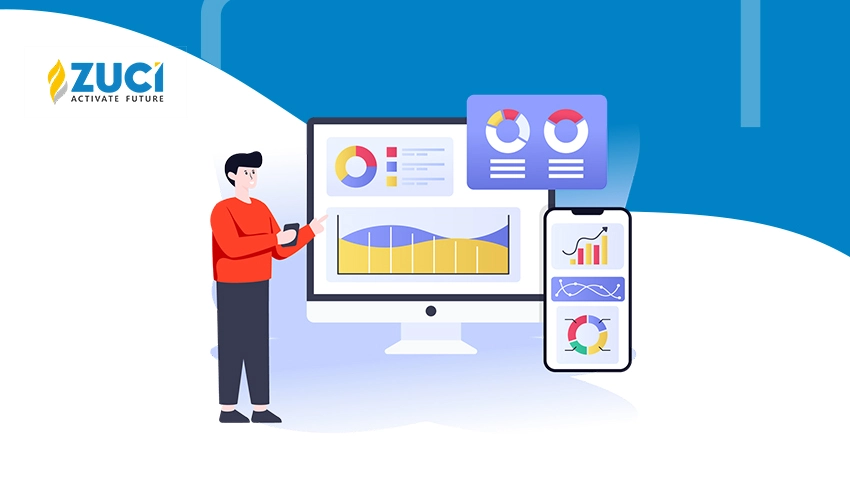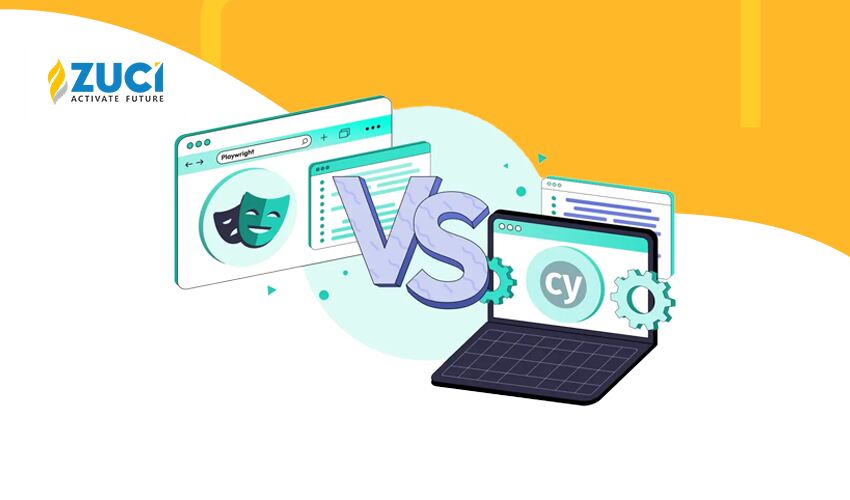Reading Time : 1 Mins
What Is a Correlation Matrix? How to Use it in Taking Business Decisions?
I write about fintech, data, and everything around it
What is a correlation matrix? What is it used for? This post will shed some light to these questions and show you the steps to use it in order to take your business decisions forward.
Correlation analysis in the research world is a statistical method that measures the strength of a linear relationship between two variables and computing their association. In other words, correlation analysis calculates how a change in one variable affects the other.
What is a correlation matrix?
A correlation matrix is a table which displays the correlation between variables. For example, it tells you whether a rise in fuel prices affects the rate of groceries. Once a relationship is ascertained, it helps businesses make business decisions accordingly. A correlation and regression analysis not only helps you with identifying the relationship between the variables, but also shows how if one data set changes, it will have an effect on the other data set.
The results of a correlation analysis are used to forecast sales, product development, predicting future trends, optimize operations, better customer experience strategies, and more.
Positive correlation and Negative correlation:
You can see how correlation affects our day-to-day lives when you see how heavy rainfall in an area is directly related to the output of a crop there. In this case, if the increase in rainfall results in more production of the crop, then it is positively correlated. If the price of a commodity goes up and its demand reduces, then it is negatively correlated.
If the value of r lies in a range from -1 to +1, then the value of r will be like this:
| Correlation Type | Correlation coefficient (r) |
|---|---|
| Positive correlation | When r>0 but less than 1 |
| No correlation | When r=0 |
| Negative correlation | When r>-1 but less than 0 |
Correlation matrix and regression business use cases:
They are used in business to predict potential outcomes so that businesses can make informed decisions based on what it says.
Let us look at some of the ways in which they provide value:
1. Reduces business errors
The results from a correlation matrix lets you go after new theories, hypotheses, and strategies to see if they can be successful. It will result in reduced errors and risks because the experiment is conducted based on solid data. Therefore, correlation and regression analysis supports evidence-based decision making instead of having to rely on gut feeling and guesswork.
For example, a B2B SaaS business might assume that having more SDRs can improve their sales funnel, but in reality, it might result in increased employee labour charges alone. The real reason might be a lack of marketing collateral to educate the potential customer, and that can be ascertained as well using this strategy.
2. Better forecasting
Easily one of the biggest advantages of correlation matrix and regression analysis, predicting future business outcomes happens better with it. While it does help with demand analysis, there are other variables too when it comes to the success of a business.
Example: Insurance companies are heavily reliant on regression analysis to estimate the credit-worthiness of policyholders and the number of claims in a time period. Another example could be how the analysis can forecast the number of shoppers available on a particular channel, thereby helping you estimate the amount of marketing budget you can allocate there.
3. Gather valuable insights
Business data accumulated over a period of time can result in valuable business insights with the help of correlation analysis. It can help determine the relationship between different variables by unearthing patterns that might have been unnoticed earlier.
For example, data from your internal systems might reveal that the number of upsells and cross-sales increases for customers who have stayed with you for more than 15 months. You can use this information to push more products and services to these customers.
4. Operational efficiency
With the help of correlation matrix and regression models, you can optimize business processes by analyzing the relationship between different variables. You can analyze the relationship between solving customer complaints within an hour and the number of complaints. It will help you create a system of sorts where you can allocate certain complaints to be of high priority.
When the decisions you make are based on data, you will improve your business performance and it will have a direct impact on your bottom line.
5. Improved decision making
A business has to make a myriad of decisions for different departments, whether it be sales, marketing or finance. Thankfully, businesses have started understanding the significance of making them based on statistical analysis. Correlation matrix and regression analysis creates raw data into information that is usable. It helps businesses make smarter and informed decisions.
6. Understand consumer behaviour
Businesses can use statistical analysis to understand consumer behavior and factors that influence their purchasing decisions. The correlation matrix and regression analysis can be used to evaluate the trends in your niche and how certain changes that you make in terms of how you operate or your marketing strategies can result in improved sales in the future.
7. Analyze marketing effectiveness
If a company wants to know if investing in SEO for a particular brand will bring in more revenue or not, they can use linear regression. With its help, they can not only identify the impact of SEO for your bottomline, but can also look at the various factors that could add more strength to the marketing campaigns. Suppose you have a SEO and a paid ads campaign for a new product, you can capture their individual impacts as well as the combined impact of both of them.
8. Improved management
By using correlation and regression analysis, businesses can identify the resources that need to be allocated to achieve a certain level of traction. They will be able to understand the kind of marketing and advertising strategies that their target market will be able to relate with, customize their products and solutions and even find better ways to manage the business.
How are correlation matrices used in business?
Correlation Matrices serve as versatile tools extensively utilized across various business domains. In finance, they play a crucial role in risk assessment and portfolio management by revealing correlations among different investments. These correlations aid in constructing well-diversified portfolios, balancing risks and returns effectively. Operational matrices are equally vital, particularly in optimizing supply chain operations. By modeling relationships between suppliers, resources, and production stages, these matrices streamline workflows and enhance resource allocation for increased efficiency.
Furthermore, in strategic decision-making, matrices serve multiple purposes. They assist in market analysis, SWOT assessments, and project management, providing invaluable insights that facilitate informed decision-making processes. Their applications span from marketing strategies to human resource management, enabling businesses to align their efforts effectively. Overall, matrices stand as indispensable assets, fostering enhanced operational efficiency, informed decision-making, and strategic planning within businesses.
Final Thoughts
Gone are the times when businesses could make do with intuition and reputation to make business decisions. You need to derive razor-sharp insights from data that is gathered from a variety of sources, including internal ones, when you make business decisions. If you don’t use proper analyses to propel your business in the right direction, there are high chances that you will stay behind, and that should be avoided.
At Zuci, we are mavens at understanding how to leverage your data to convert them in the form of business use cases. Zuci’s experienced Business Intelligence team is familiar with helping businesses drive profitable outcomes. Get in touch with us to understand how we can help you with your data.
Related Posts





















